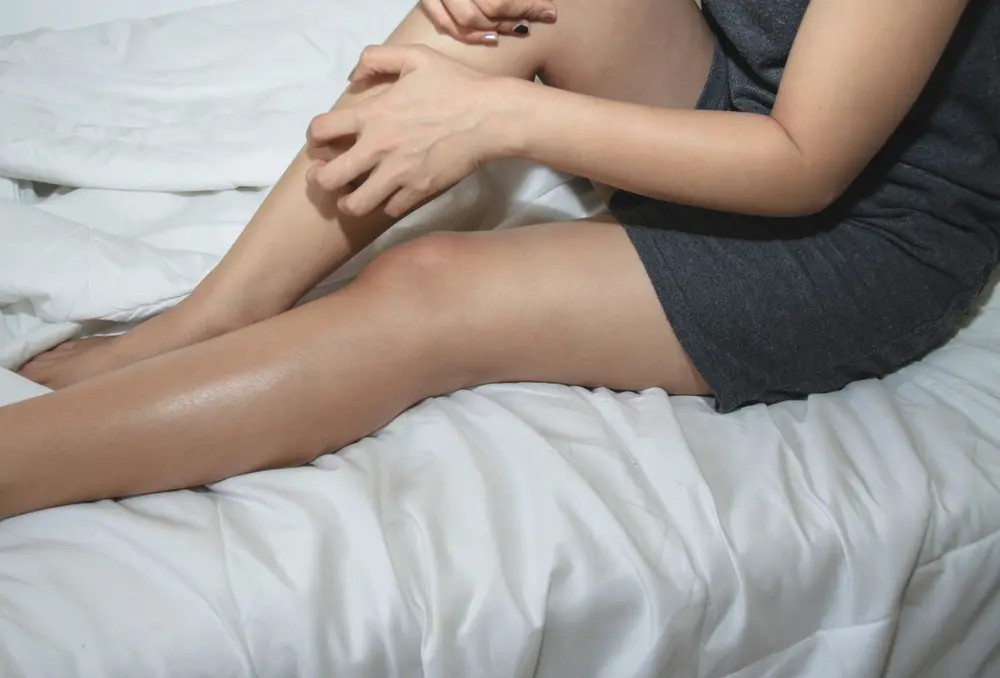
It’s not uncommon for your skin to feel dry or itchy occasionally. Changes in weather, allergies, drug side effects, or even stress can cause temporary irritation. But when itching becomes persistent and doesn’t seem to have an obvious cause, it may be a sign of something more serious. One of the lesser-known reasons for chronic itching is liver disease.
Itching (pruritus) is a common sign of chronic liver disease. It can be a localized itch on your lower arm or an all-over itch. Either way, it can result in a distracting and overwhelming desire to scratch.
Your liver plays a major role in detoxifying your body. When it’s not working properly, toxins and bile acids can build up in your bloodstream. Researchers believe these imbalances may contribute to itching, but they’ve yet to pinpoint a single cause. Instead, multiple factors could be at play, including:
Not all liver conditions cause itching. It’s rarely associated with alcohol-related liver disease or nonalcoholic fatty liver disease (NAFLD). However, if you have any of the following conditions, persistent itching could be a sign that your liver function is declining:

The itching sensation is deep, persistent, and impossible to ignore. It’s not the kind of itch you can scratch away. No amount of rubbing, pressing, or scratching brings real relief. Instead, the more you scratch, the worse it gets.
Many people scratch until their skin bleeds, leaving raw, painful wounds and skin lesions that take longer to heal. This can lead to skin infections, scarring, and constant discomfort. Even simple things like showering, wearing certain fabrics, or being in warm temperatures can make the itching worse.
But the effects go far beyond your skin. Sleep becomes a battle—just as you try to rest, the itching flares up, keeping you awake for hours. The next day, exhaustion hits hard, leaving you feeling drained, foggy, and irritable. Tasks that used to feel easy suddenly feel impossible when you’re running on little to no sleep.
Then there’s the emotional toll. Itching that never stops can make you feel anxious, frustrated, and even hopeless. It’s exhausting to deal with something so relentless—especially when people around you don’t fully understand what you’re going through. Over time, your quality of life takes a serious hit.
Liver-related itching usually doesn’t go away on its own, but there are ways to manage it. Because the exact cause isn’t fully understood, treatments vary, and what works for one person might not work for another. It often takes a mix of therapies and some trial and error to find relief.
Here are some things that might help:
Scratching may feel good in the moment, but it makes things worse. It can damage your skin and lead to infections. Keep your nails short, wear loose clothes, and use a cold compress when the itching gets bad.
Some creams and lotions can help calm the itch. Look for fragrance-free options with menthol or calamine. If over-the-counter products don’t work, your doctor might prescribe a stronger cream.
Doctors sometimes prescribe medications that help with itching. Some, like Rifampicin or cholestyramine, work by lowering bile acid levels, while others, like Naltrexone, change how your brain processes the itch. If one medication doesn’t help, your doctor might try another.
Antihistamines don’t usually stop the itching but can help you sleep better. If the itching keeps you up at night, taking one before bed might give you some much needed relief.

Light therapy (phototherapy) can help some people. It exposes your skin to controlled UV light, reducing the itch by affecting nerve signals.
If your liver disease is severe and other treatments don’t work, a liver transplant might be the best option. This is usually only for advanced cases, but it can completely stop the itching if your new liver is healthy.
If you’re dealing with liver-related itching, don’t ignore it. Talk to your doctor, try different treatments, and find what works best for you. Relief is possible—you just need the right plan.
Persistent itching might be the first sign that your liver is struggling. If you also notice fatigue, yellowing skin (jaundice), dark urine, or unexplained nausea, don’t ignore it. Early detection of liver disease gives you the best chance of preventing further damage and maintaining your quality of life.
Research into emerging therapies for pruritus is ongoing. Scientists are exploring new medications that block the pathways responsible for itching. Some clinical trials are testing drugs that specifically target LPA and autotaxin, which could lead to breakthroughs in symptom management.
Science 37 also offers clinical trials for people with PBC and PSC to test an investigational medication called Volixibat. Researchers want to find out if this treatment can safely and effectively reduce itching caused by these liver diseases.
If traditional treatments haven’t worked, joining a clinical trial could give you access to cutting-edge therapies. Clinical trial participants help advance groundbreaking research and get a chance to try innovative solutions before they become widely available.
Interested? Learn more about the trial and see if you’re eligible. Your participation could help improve treatment options for countless others with liver-related itching.


